 |
CONTINUING
EDUCATION COURSES
Course 1: Hidden Treasures on the Internet (Half-Day Course)
Course
Trainer:
Friedhelm
Rump
, Library of the University of Veterinary Medicine
Hannover.
Friedhelm.Rump@tiho-hannover.de
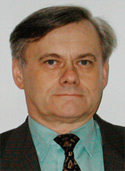 |
Biography
Friedhelm Rump holds a diploma (1973) and a PhD (1978) in
Geochemistry from Göttingen University. He undertook
his library training at Göttingen University Library
and Fachhochschule für Bibliotheks-und Dokumentationswesen
in Köln (1980 -1982). He has held positions at the
Göttingen University Library, the Municipal Archives
of Göttingen and Hohenheim University, Stuttgart. Since
1990 he has been library director at the Veterinary University
of Hannover. He has held a number of honorary positions.
He is very active in EAHIL and is both treasurer and spokesman
for the European Veterinary Libraries Group.
|
Course
description
The course focuses on three search skills, search tools
and special resources. The aim is to provide an extensive
overview of what exists on the internet and how to use it
effectively. The expected level of expertise for participants
ranges from basic to intermediate. The contents of this
course will be available on a CD which will be given to
participants free of charge at the end of the course.
|

Course
2: Measuring Impact: Cost Justification for Information Services
(Half Day Course)
Course Trainer:
Liz Blankson-Hemans,
Director, Information Professional Development, Dialog, a division
of Thomson Scientific liz.blankson-hemans@thomson.com
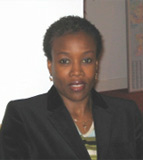 |
Biography
Liz Blankson-Hemans is Director - International, Information
Professional Development, at Dialog, a division of Thomson
Scientific. She manages the deployment of Quantum2 (Dialog’s
Leadership Development Programme for information professionals)
in Europe and Asia Pacific; the Dialog Customer Advisory
Board for the International region, and the Graduate Education
Programme outside North America. She also coordinates the
company’s interactions with professional groups such
as CILIP, CiG and the Special Libraries Association (SLA)
in Europe and in Australia/New Zealand. She was president
of SLA Europe in 2004-2005, and also sits on the SLA’s
Diversity Leadership Development Programme committee. |
Course
description
Librarians have usually been diligent in measuring operational
indicators such as requests, loans, transactions, search
sessions, and so on. Such measurements should continue to
be done, but it is critical to measure the right things
and to interpret the numbers for meaningful indications
of changing needs. Measuring and analyzing library activity
is not everything, however. It is equally important to measure
impact. Measuring impact involves charting metrics for deriving
expressions of the library's value in monetary terms, or
from demonstrable benefits such as reduced turnaround time,
improved accuracy, risk avoidance, and the like. The emphasis
of this workshop is to show how the use of externally purchased
content or services in planning for the content requirements
of the organisation can help define the impact of the information
centre in supporting key business initiatives. It layers
on the other ROI concepts within the Quantum2 framework
and offers the “big picture” view on how to
help the information centre justify its costs and ultimately,
its existence. In justifying costs for the information centre,
the inevitable trade-offs in time, cost and quality, during
the budgeting process will also be looked at.
|

Course
3: Free resources on the Internet (Half Day Course)
Course
Trainer:
Hilde
Strømme,
Ullevaal University Hospital, Medical Library. Oslo, Norway
hilde.stromme@medisin.uio.no
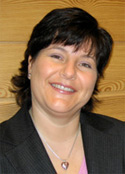 |
Biography
Hilde Strømme has worked in different Norwegian hospital
libraries since 1996. She is currently employed by Ullevaal
University Hospital, where she is head of the Medical Library’s
user education programme. Hilde Strømme is also chair
of the Norwegian Library Association’s Section for
Medicine and Health and a member of the EAHIL Council.
|
Course
description
There are numerous free medical resources on the Internet.
Some are useless, others very good. In this course we will
look at a few of the good ones. We will focus on resources
for evidence based practice, clinical guidelines, free medical
journals, and free medical databases. Please note that this
is not a course in database searching, but you will get
a few tips about some of the databases that are available.
This course will not cover everything, just a little bit
- a useful bit. The course will be a combination of demonstrations
and hands-on-training.
|

Course
4: The design of web tutorials and guides (Half Day Course)
Course Trainer:
Patricia
Flor,
Telemark University College, The Library – Porsgrunn,
Norway. Patricia.Flor@hit.no
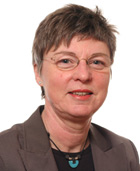 |
Biography
Patricia Flor qualified as a librarian in 1970 and has additional
studies in management and in computer science. She has worked
in medical and health care libraries in Great Britain, West
Africa and Norway. At present she is head of department
at Telemark University College Library and has special responsibility
for services to health care studies. In 2003-2004 she led
a project for the development of a web-based guide in information
literacy for students, råd&VINK.
She has been active in EAHIL for many years and is one of
the council members for Norway. She has also taken part
in continuing education committees and international programme
committees for several conferences and workshops.
|
Course
description
There are many web tutorials in information literacy freely
available on the Internet. Even so, they may not suit the
needs of our users or have an approach to teaching and learning
that is conducive to our way of thinking.
What
decisions and actions should you make before, during and
after the production of your own tutorial? This course will
look at these issues:
- Planning and goals
- Educational approach
- Content
- Information design
- Web design
- Testing
- Implementation of the finished product
|

Course
5: Managing e-journals (Half Day Course)
Course Trainer: Anne
Gry Skonnord,
Library
of Medicine and Health Sciences, Oslo, Norway a.g.skonnord@ub.uio.no
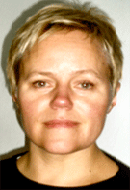 |
Biography
Anny Gry Skonnord qualified as a librarian in 1988. She
has worked with e-journals at the library of Medicine and
Health Sciences, University of Oslo, Norway, since 2001.
|
Course
description
Daily management of an increasing number of electronic journals:
How to get started. This course is aimed at librarians with
little or no experience with e-journal management.
|

Course
6: PubMed and other relevant NLM resources (Half Day Course)
Course
Trainer: Astrid Muller, Library
of Medicine and Health Sciences, University of Oslo, Norway
astrid.muller@ub.uio.no
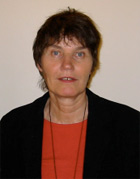 |
Biography
Astrid Muller is librarian at the Library of Medicine and
Health Sciences, University of Oslo, Norway. In addition
to giving courses in PubMed, she is also webmaster of her
library and participant in the library portal project of
the University of Olso Library.
|
Course
description
This course is designed for searchers who would like a refresher
or an update on the newest in PubMed and want to expand
their knowledge on PubMed services such as MeSH database,
Clinical Queries, LinkOut and related resources including
TOXNET, the NLM Gateway and OldMedline. (Molecular databases
are not included in the course)
|

Course
7: Negotiating Best Prices and Service for Electronic Journal
Access (Half Day Course)
Course Trainers:
Paul Harwood , Carolyn
Alderson, Content Complete Ltd
pharwood@contentcomplete.com calderson@contentcomplete.com
calderson@contentcomplete.com
Biographies
Paul trained as a librarian and spent six
years working in libraries before joining 3M in a sales
and marketing role. He worked for Swets and Zeitlinger for
fourteen years and between 1994 and 2003 was the Managing
Director of the Company in the UK and Ireland. During his
last year at Swets, Paul Harwood was responsible for the
Company’s global Consortia and Multi-Site Services
Team, helping academic consortia and global corporations
broker electronic deals with scholarly publishers. A member
of the UK Serials Group Committee since 1995, he is currently
Treasurer having also served spells as Marketing and Education
Officer for the Group.
Carolyn
has been in the serials information industry since 1988,
when she joined the UK office of The Faxon Company as
Customer Services Manager. In 1994 she became Sales Manager
(Academic & Pharmaceutical Sectors) at Swets UK. She
joined Content Complete Ltd in April 2004 as Content Negotiator.
Since joining Content Complete, Carolyn’s work has
revolved around negotiating preferential access rates
and licensing terms with publishers on behalf of NESLi2
(representing UK Higher and Further education institutions),
IReL (representing the 7 Irish universities) and for the
major pharmaceutical corporation GlaxoSmithKline (for
‘enterprise-wide’ electronic access).
|
Course
description
This Course is designed to help librarians and information
professionals in handling negotiations with online journal
publishers. It will be led by Paul Harwood and Carolyn Alderson
from Content Complete Limited and is based on the experiences
of the workshop leaders in negotiating with publishers on
behalf of academic consortia and multi-sited global corporations
and a range of other clients in the public and private sectors.
The workshop adopts a chronological and systematic approach
to the process of negotiating with publishers, from identification
of the content to be licensed through to post-negotiation
issues and service fulfilment. It includes some practical
exercises and group work.
The
workshop will be of interest not only to those individuals
just setting-out on the negotiations path but also to
those who wish to benchmark their own negotiating strategies
and approach with others.
|

Course
8: Searching IndexCat – the digitized version on the Index-Catalogue
of the Library of the Surgeon General’s Office. (Half
Day Course)
Course Trainer:
Lillian R. Kozuma, History
of Medicine Division, NLM, Bethesda, (USA) kozumal@mail.nih.gov
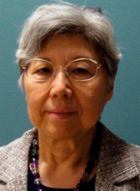 |
Biography
Lillian Kozuma is employed at the National Library of Medicine
and has over thirty years of experience with conversion
of manual resources to digital formats for public access.
Ms. Kozuma served as Project Officer for conversion of the
NLM Card Catalog and the Index-Catalogue project. Her experience
includes writing of user search manuals, Web documentation,
teaching librarians search techniques for CATLINE (predecessor
to LocatorPlus), instructing staff on NLM’s ILS system,
and development and presentation of an IndexCat course for
the 2004 meeting of the American Association for the History
of Medicine. Currently, Ms. Kozuma is involved in preparing
Web access to A Catalogue of Incipits of Mediaeval Scientific
Writings in Latin by Lynn Thorndyke and Pearl Kibre and
A Catalogue of Incipits of Mediaeval Scientific Writings
in Old and Middle English edited by Linda Ehrsam Voights
and Patricia Deery Kurtz. In 2005, Ms. Kozuma received the
NLM Frank B. Rogers Award for major contributions to NLM
services. |
Course
description
This hands-on course is designed to provide background information
on the development of IndexCat as a cooperative project;
To demonstrate IndexCat search strategies for subject and
author access; To discuss scope and content and their relationship
to search results; and To describe the hierarchical structure
of IndexCat and its use for further searching. At the end
of this course, participants will: a) understand the IndexCat
development process; b) have more options for forming search
strategies; c) be aware of specific limitations in retrieval
results because of scope and content issues; and c) understand
the nature of IndexCat structure and how it can assist in
searching.
|

Course
9: From Medline to Cochrane: Essentials of Evidence-Based Medicine
for Medical Librarians (Full Day Course – Lunch Included)
Course
Trainer: Jarmila Potomkova,
Medical Library Director, Palacky University, Olomouc, Czech
Republic potomkov@tunw.upol.cz
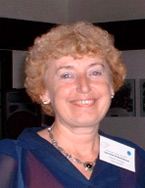 |
Biography
Jarmila has worked as an information specialist in the field
of agricultural research for 20 years. In 1994 she took
the post as medical library director at Palacky University
in Olomouc. She acquired most of her information technology
skills through participation in the 5-year-project Learning
Resource Centers in CEE countries sponsored by the American
International Health Alliance focused on information technology
in medicine and healthcare including evidence-based medicine.
In 2003 she was granted a Certificate of achievement in
the area of application of evidence-based practice, community
outreach, LRC sustainability and educational technologies
from the American International Health Alliance (Washington,
D.C., USA). She has taken an active part in all EAHIL conferences
and workshops since 1999. Her main field of interest is
information retrieval, the role of librarians in EBM and
teaching information skills. |
Course
description
This course is suited for beginners to demonstrate the practical
role of medical librarians in the process of evidence-based
medicine.
Module 1: Basic Introduction to Evidence-Based
Medicine
(definition, history, pros-cons, steps in EBM process, „the
well-built clinical question“).
- Presentation,
Module 2: EBM Resources: Where to Search?
(recommended resources online demonstration, document types,
hierarchy of evidence, availability)..
- Presentation,
- Interactive Searching.
Module 3:
Finding the Best Evidence: How to Search?
(Sample MEDLINE Search via PubMed, application of limits,
MeSH terms, LinkOut option. Narrative vs. Systematic reviews).
- Presentation,
- Interactive Searching.
Module 4: Cochrane Collaboration:
Activities and Products.
(Cochrane Library sample searches, typical features of
Cochrane systematic reviews).
- Presentation,
- Interactive Searching via Ovid Gateway.
Module
5: Tips for Assessing the Value of Medical Literature.
(Bibliometric tools – SCI, journal IF, Critical
Appraisal Skills Programme – CASP International,
quality criteria for medical websites).
- Presentation,
- Online Searchiing.
PRE-REQUISITE:
Required Reading List for Participants of the Course.
For a digital copy of articles 2-4 please contact potomkov@tunw.upol.cz..
(1) Bhandari M., Zlowodzki M., Cole P.A.
(2004) From eminence-bassed practice to evidence-based
practice. A paradigm shift. Minnesota Medicine 87(April).
Online. http://www.mmaonline.net/publications/mn-med.cfm.
(2) Gartlehner G. (2004) Evidence-based
medicine breaking the borders – a working model
for the European Union to facilitate evidence-based health
care. Wien Med Wochenschr 154(5-6):127-132. Davies H.T.O.,
Crombie I.K. (2003) What is a systematic review? What
is……bulletins 1(5):2-6
(3) Straetemans M et al. (2003) Review
of randomized controlled trials on
pneumococcal vaccination for prevention of otitis media.
Pediatr Infect Dis J 22(6):515-524.
(4) Pelton S.I. (2002) Acute otitis media in an era of
increasing antimicrobial resistance and universal administration
of pneumococcal conjugate vaccine.
Pediatr Infect Dis J 21(6):599-604.
|

Course
10: The changing role of the medical information specialist
(Full Day Course – Lunch Included)
Course
Trainers: Ronald van Dieën,
Ingressus BV, 3000 CH Rotterdam
Hans Ket, VU University Medical
Center, Amsterdam
rvandieen@ingressus.nl and h.ket@ubvu.vu.nl
Biographies
Ronald van Dieën completed Library
School in 1988. Since then he has worked as the head of
several medical and psychiatric libraries. Co-founder of
the Central Catalogue of Hospital Libraries in the Netherlands
and is former chair of the Dutch Medical Library Association
(NVB/BMI). In 1998 he became general manager of EBSCO the
Netherlands. Since 2001 he has worked as a medical library
consultant for Ingressus. He is stimulated and motivated
by sharing ideas, experiences and knowledge with other library
professionals.
Hans Ket (1964) has had a varied career starting
with Library School in 1985, working as a librarian for
an aircraft factory, art school, Dutch Medical Association,
University of Utrecht's psychological test department and
nursing school library. In between all of these he trained
as a nurse. Since 2003 he has been a clinical librarian
at the Vrije Universiteit Medical Center (VUmc) in Amsterdam.
As a CL he is actively involved in supporting and delivering
information sevices for clinical practice, medical education
and health & clinical research, especially in the fields
of allied health, nursing, medical psychology, gynecology,
pediatrics and ophthalmology. He is a keen, although fairly
recent, attender of EAHIL and HTAi conferences and workshops.
On a national level he is active in promoting clinical librarianship
and giving presentations to fellow librarians. He is very
interested in finding out about the experiences in the information
field from librarians as well as medical professionals.
He enjoys giving instructions, courses and classes of all
sorts to various groups in the medical and the library field. |
Course
description
Medical librarians have to start selling themselves. The
library and its staff are under pressure from hospital management:
decreasing budgets, bad image and the general opinion that
everything can be found on the Internet for free. Library
staff themselves highly influence the impression and opinion
of users and management about the library.
Increasing demands from users and management within institutions
on one hand, and a fast changing information world on the
other hand, demand rapid action and innovative approaches
from librarians. A business like model and the fast increase
of electronic resources are catalysts for the changing role
of the medical information specialist. Clinical librarianship
in different forms and shapes is rapidly evolving. Based
on theoretical and practical experiences of both presenters
we present library models which will be able to handle these
new demands. Various techniques, approaches and most important
the concept of clinical librarianship will be clarified,
discussed and evaluated.
Objectives
and learning outcome
At the end of the workshop the delegates will be aware
of their changing role and have received tools to stand
up and fulfil their new role.
We are going to work with you on all
major aspects of the changed medical information services.
We will mix theory with lots of practical examples (‘cases’)
and discussion with you. The addressed issues include:
-Teaching
- Searching
- Customer relations
- Marketing, communication and public relations
- Professional standards
- Medical knowledge
- Self-esteem and attitude
- Customer groups
- Library products
- Training
- Evidence Based ... and critical appraisal
- Networking and cooperation
- Collection management
- Management models and taxonomies;
- Back office versus Front office;
- Practical Clinical librarianship.
Please join our workshop and share your
ideas, experiences and fears with us!
|

Course
11: How to eat an elephant - or - how to keep your audience
Awake (Full Day Course – Lunch Included)
Course
Trainers: Eve Hollis BSc.
MCLIP, NOC NHS Trust, Oxford
Ronald van Dieën, Ingressus
BV, 3000 CH Rotterdam
ehollis@gwmail.jr2.ox.ac.uk and rvandieen@ingressus.nl
Biographies
Eve Hollis began her library career as
a library assistant at the Nuffield Orthopaedic Centre,
Oxford. Her first career was medical radiography, which
was a useful background for a medical librarian. Since 1995
she has been the Library Services Manager. Learning never
stops and she has attended numerous seminars, workshops,
conferences and trainings, and she has found that most of
them, while interesting in content are usually profoundly
dull to sit through, often leading to afternoon snoozes.
Learning should start as fun in the nursery and continue
to be enjoyed when discussing one's pension.
Ronald
van Dieën completed Library School in 1988.
Since then he has worked as the head of several medical
and psychiatric libraries. Co-founder of the Central Catalogue
of Hospital Libraries in the Netherlands and is former
chair of the Dutch Medical Library Association (NVB/BMI).
In 1998 he became general manager of EBSCO the Netherlands.
Since 2001 he has worked as a medical library consultant
for Ingressus. He is stimulated and motivated by sharing
ideas, experiences and knowledge with other library professionals.
|
Abstract
How do you eat an elephant? One slice at a time! The same
applies to digesting difficult to understand or boring information
- one bit at a time. Information overload in presentations
will only lead to indigestion, failure to understand, and
a dozing audience. This course will help the attendees to
put together presentations of difficult or boring material
and make it more interesting. It will give tips on technique,
do's and don'ts, and ways of keeping an audience interested
and awake.
|

Course
12: English for librarians (Two Day Course – Lunch Included)
Course Trainer:
Mihaela Lazar, EFL Teacher,
British Council Romania and Cambridge ESOL mlazar@mail.dntcj.ro
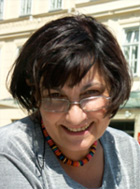 |
Biography
Mihaela Lazar has been an EFL teacher for more than 25 years
in Cluj-Napoca, Romania. She also has wide experience as
a mentor and teacher trainer. A few years ago she was appointed
Cambridge presenter by Cambridge ESOL and has been running
seminars for teachers ever since. Besides working for the
British Council Romania and Cambridge ESOL she has kept
in constant contact with native speakers, training American
teachers sent to work in various bilingual schools throughout
Romania within The Central European Teaching Programme.
Mihaela also has a special interest in drama, especially
after attending a course on Educational Drama. She has just
been approved to conduct “ English for business”
Oral Examinations by the London Chamber of Commerce and
Industry Examinations Board. |
|
Course
description
DAY 1 - Morning Session
Time |
Topics |
| 9:00
- 10:30 |
-
greeting people and responding to greetings
- introducing oneself and other people
- asking for and giving personal details
asking about and describing jobs and responsibilities |
| 11:00
- 12:30 |
-
small talk
- polite requests
- food and drink
- discussing interests, leisure time activities, weather |
Afternoon
Session
Time |
Topics |
| 13:30-15:00 |
- making, accepting and refusing
offers
- thanking and expressing appreciations
- talking about own region/country
- inviting, accepting and refusing invitations
|
| 15:30-17:00 |
- giving
and receiving instructions
- asking for and giving permission
- planning future events, chairing meetings |
DAY
2 - Morning Session
Time |
Topics |
| 9:00
- 10:30 |
-
predicting and describing future possibilities
- asking for and giving opinions
- agreeing and disagreeing |
| 11:00
- 12:30 |
-
making, accepting and rejecting suggestions or recommendations
- justifying decisions/actions |
Afternoon
Session
Time |
Topics |
| 13:30-15:00 |
--
developing the skills required for taking part in
or running a workshop
|
| 15:30-17:00 |
- developing
presentations skills |
|

Course
13: Getting the Best out of Yourself and Your Staff (Two Day
Course – Lunch Included)
Course
Trainers:
Adriana Vuscan, Vice-President, the
Romanian Mentors’ Association/ASMERO
Monica Marasescu, Director,
British Council Centre,Cluj,
monica.marasescu@mail.rdscj.ro
Biographies
Adriana Vuscan has been involved in mentoring
work since 1997, being trained as mentor trainer at Leeds
University, School of Education, 1999. She has held training
courses both in Romania and abroad (Latvia and Ukraine),
and has been involved in several British Council mentoring
projects (Presett, Support for Newly Qualified Teachers,
Mentor Observation and Support Scheme). She is co-author
of Portfolios for Newly Qualified Teachers and their Mentors
(2002); and of Tests for Evaluating Mentors(1998). Currently
she is Vice-President of the Romanian Mentors’ Association/ASMERO.
Monica
Marasescu is an experienced mentor trainer and
has worked in the field since 1997. She was trained to
be a mentor trainer at Leeds University, School of Education
in 1999 and has trained mentors both in Romania and abroad.
She has acquired experience developing and managing mentoring
projects for the British Council: Support for Newly Qualified
Teachers (2000-2002) and Mentor Observation and Support
Scheme (2001-2002), and is co-author of Tests for Evaluating
Mentors (1998). Currently she is Director of the British
Council Centre in Cluj-Napoca, which includes a Library
and Information Centre.
|
| Abstract
This 2-day workshop will look at a librarian’s development
within a mentoring system. We will help participants become
aware of the specific skills and qualities of a successful
mentor and of the mentor’s roles in assisting colleagues
in their early or mid career. Participants will be invited
to take part in an exciting interactive course where sharing
experience and reflection on one’s practice will
enhance and benefit professional communication and learning.
|
|
|
 |

